Mr Francesco Paul Neal Noschese (2023)
Mr Francesco Paul Neal-Noschese (2023)
AST’s 31st Outstanding Educator-in-Consultancy (OEIC) Programme
Mr Francesco Paul Neal-Noschese (Frank Noschese) is a New York State Master Teacher Emeritus and is passionate in leading students construct their own understanding of science concepts. With over 24 years of experience in the teaching of Physics in John Jay High School, he was a recipient of the Paul W. Zitzewitz Excellence in K-12 Teaching Award from the American Association of Physics Teachers in 2018 as well as the Presidential Award for Excellence in Mathematics and Science Teaching in 2011.
Prior to his engagement as the Outstanding Educator for AST’s OEIC (from 10 April to 21 April 2023), Mr Noschese collaborated closely with our Master Teacher/Physics, Mr Jensen Ong, in co-designing and co-developing engagements for our educators. These discussions rich and delved deep into pedagogical practices associated with inquiry-based learning, and how the local contexts can be considered for the application of teaching strategies. Mr Noschese also collaborated with our local Teacher Collaborator, Mr Lawrence Tang (Lead Teacher/Physics, Zhonghua Secondary School), to apply his strategies in inquiry-based learning to enhance the learning of the concept of stability in a Secondary Three classroom in Zhonghua Secondary School.
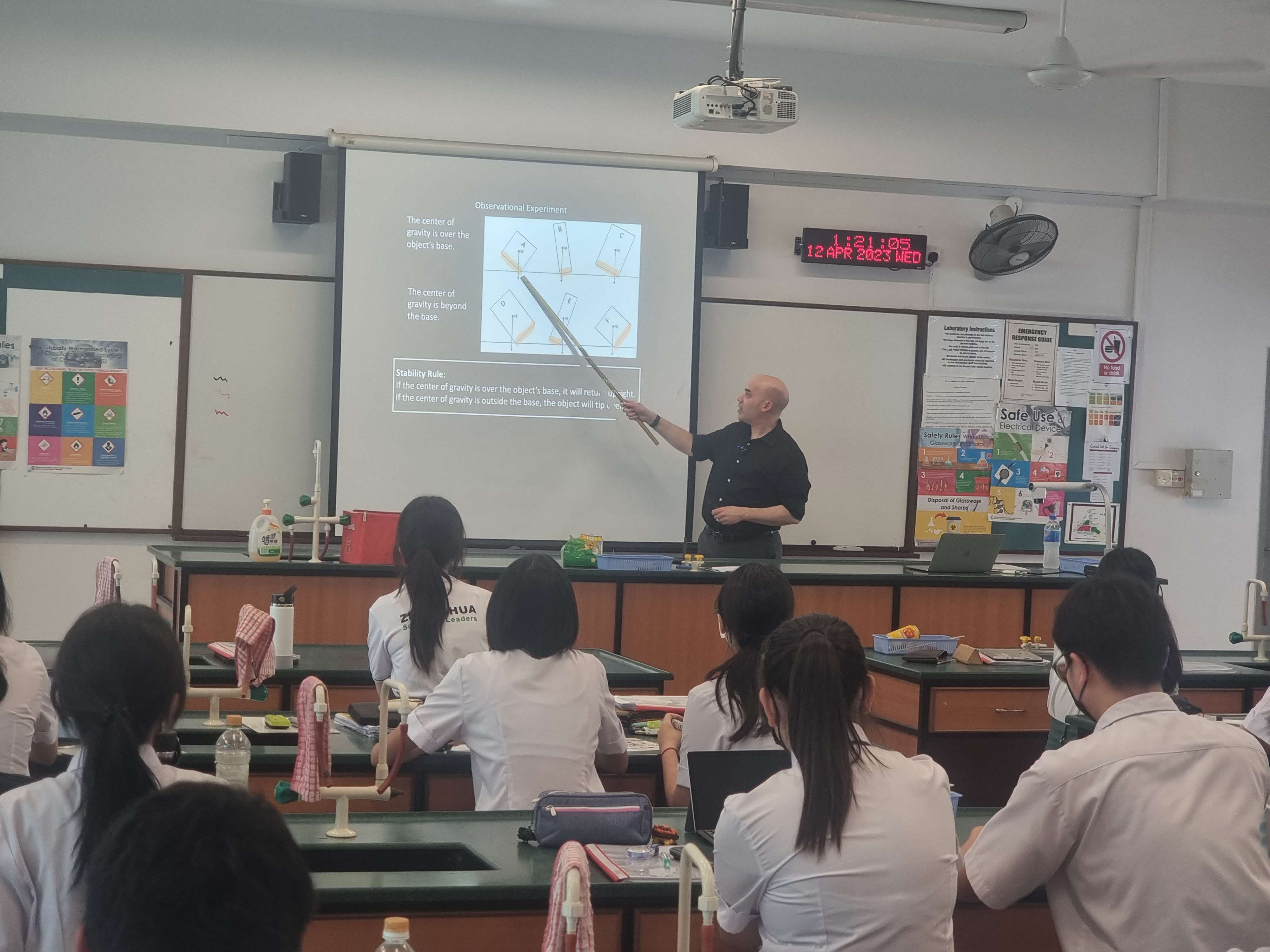
.jpg)
Overview of Onsite Workshops (Part 1) [17 April to 20 April 2023]
During each of the four zonal workshops, Mr Noschese modelled pedagogical leadership via hands-on activities for workshop participants. He also drew reference from his lesson demonstration in Zhonghua Secondary School to deepen participants’ understanding of one of the learning strategies employed, namely the ‘Observe, Predict and Apply’ model and how variables in teaching and learning can be considered when designing and enacting lessons.
For example, teacher participants were posed with the trigger question: “How high will a ball bounce?” Participants were then tasked to consider patterns between the height that a ball was dropped, and the height of its bounce. They then applied the critical thinking of prediction to assess the height the ball should be dropped for it to bounce to reach the height of a given chair. Through this activity, Mr Noschese also engaged participants to think about how to leverage the ‘Observe, Predict and Apply’ model to infuse inquiry-based learning into lesson designs by encouraging their students to think about diverse variables and possible relationships across scientific concepts.
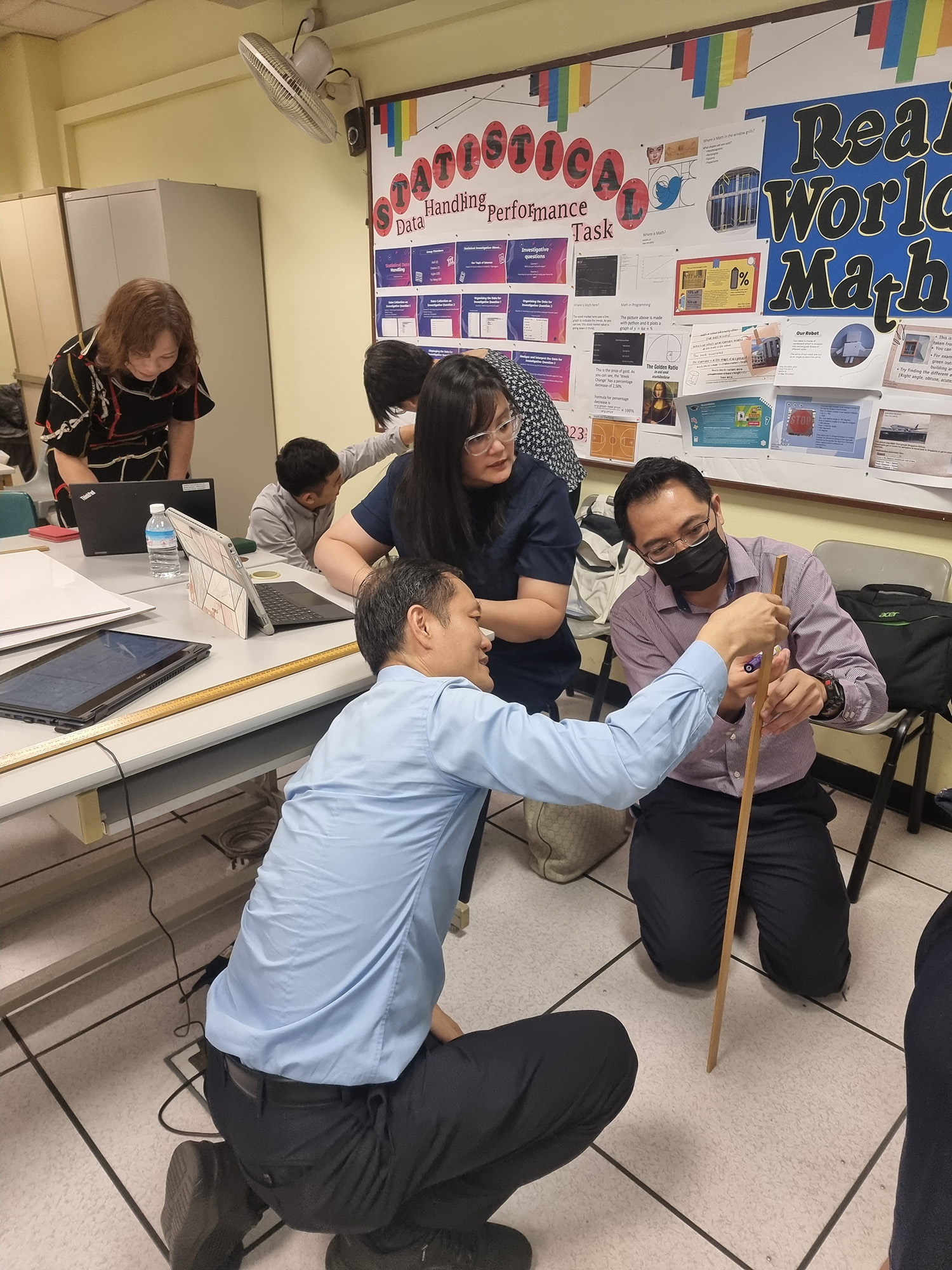
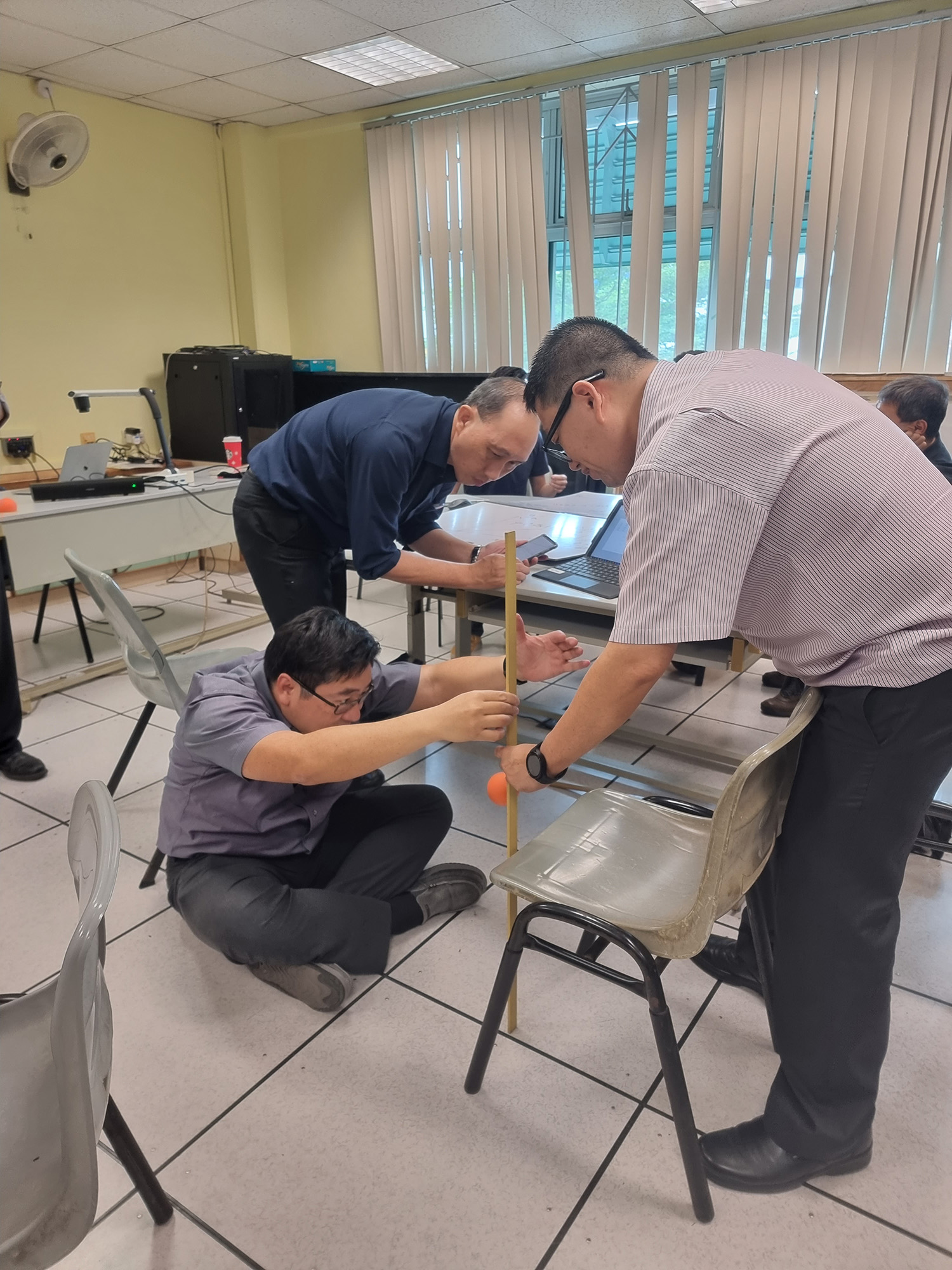
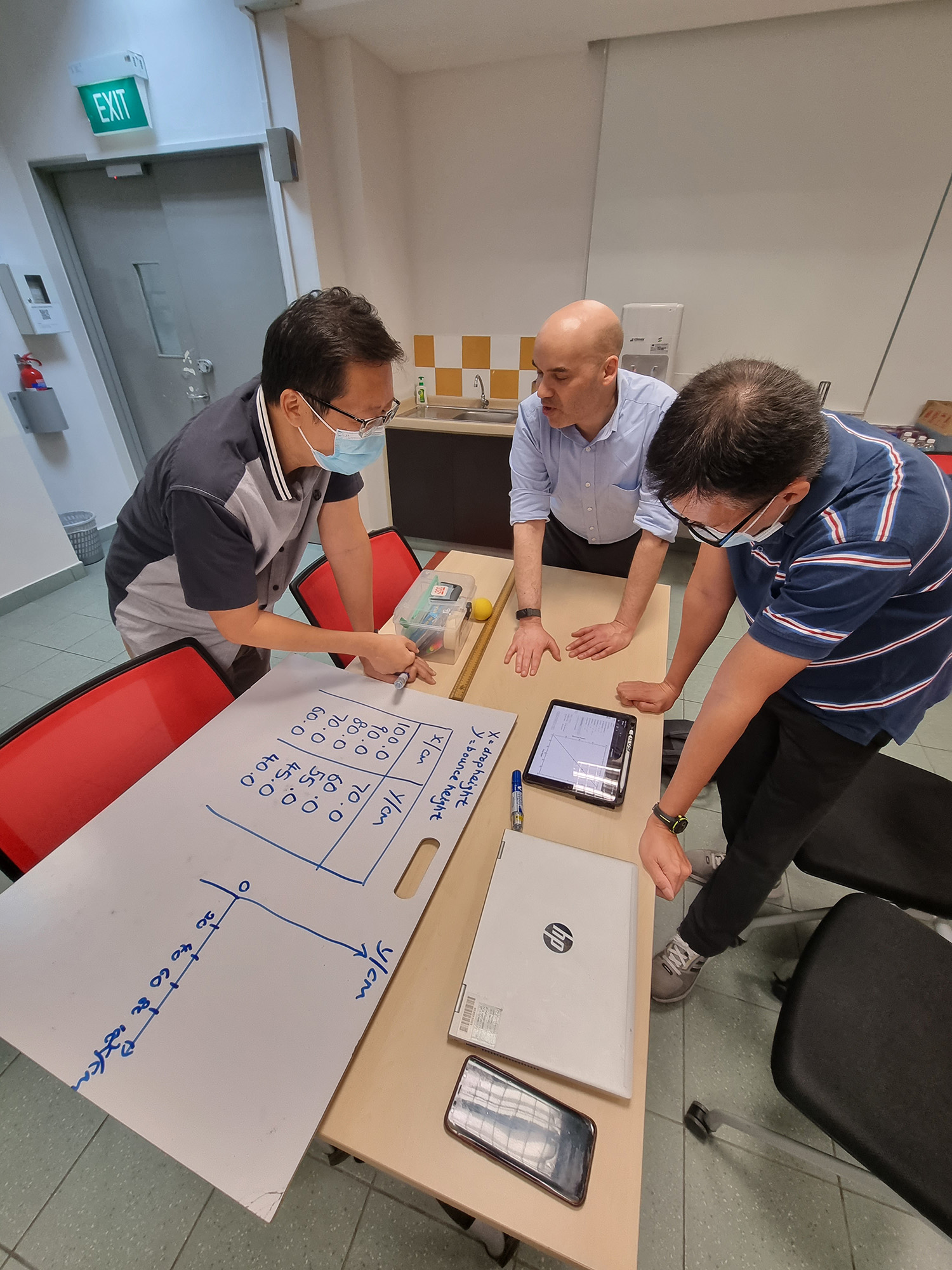
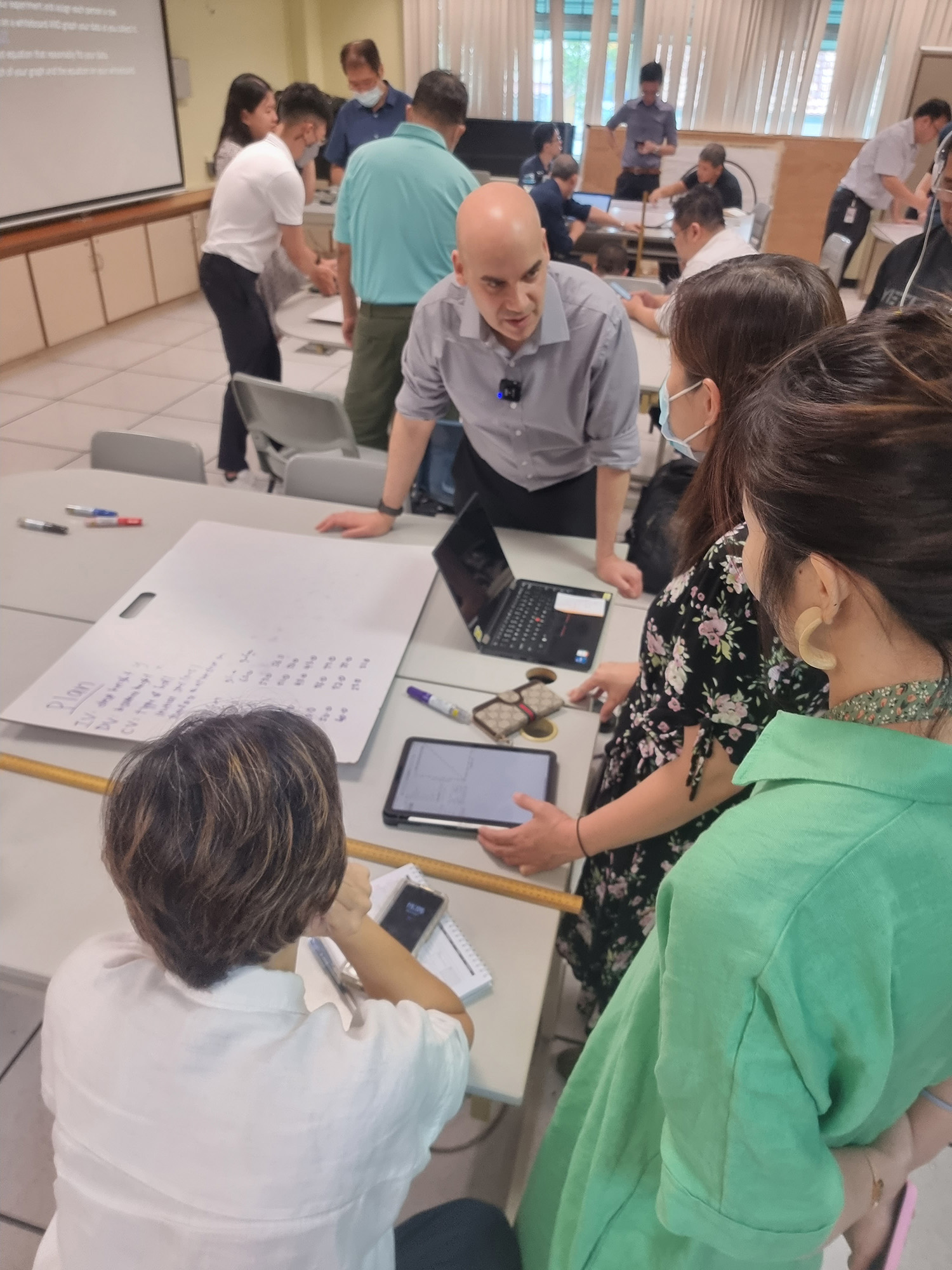
Through feedback given by teacher participants on the four workshops, participants expressed appreciation the strategies shared and model by Mr Noschese. They recognised that it takes small shifts in mindsets to transform teaching practices that can bring about the development of critical and inventive thinking in students.
.png)
Overview of Online Workshop (Part 2) [16 August 2023]
Workshop (Part 2) was led by our Outstanding Educator (OE), Mr. Noschese, in collaboration with our Teacher Collaborator (TC), Mr. Lawrence Tang (Lead Teacher/Physics, Zhonghua Secondary School). This was followed by the sharing by local educators at four concurrent sessions which demonstrated further localizing pedagogical practices in schools, inspired by Mr Noschese.
The concurrent sessions were:
| Presenting Schools | Title | Presenters |
|---|---|---|
| Anderson Secondary School | 5E Inquiry in Teaching Energy using MIRO and Tracker’ | Mr Ang Richmond Dy; Mr Lai Rher Wei; Mr Ng Weilun |
| Canberra Secondary School | Use of Open-ended Problems and Making Students Do Pattern-finding in the Teaching of Energy | Mr Chia Wai Han; Mrs Goh Wai Yee; Mr He Jiaen; Mr Koh Tat Siang; Ms Ng Liting Olivia |
| Fuhua Secondary School | Inquiry-based Approach to Engage Learners - Creating a prototype to solve a real-world DC Circuit Problem | Mr Muhammad Khairi Bin Ruslihan; Mr Loh Kok Wee Raymond |
| Guangyang Secondary School | An Inquiry-based Exploration of Conservation of Energy | Mrs Lim Poh Geok; Mrs Loh-Teo Siew Khim Kim; Ms Tan Ee Ling Janelle; Mr Yong Kwong Fui |
The objectives of the Workshop (Part 2) were to learn how Inquiry-based Learning (IBL) strategies can be deployed in Physics classrooms and explore how these approaches could enhance the development of 21CC in our students. The participants delved into innovative teaching approaches that sparked curiosity, critical thinking, and active engagement among students; ultimately fostering a deeper understanding of Physics concepts.
Our OE, Mr. Noschese, shared a summary on the Observe, Predict, and Apply (OPA) framework, presented in Workshop (Part 1) in April. This pedagogical model encouraged students to actively engage with the scientific concepts by first observing a phenomenon, making predictions based on their observations, and then applying their understanding to real-world scenarios. With it, Mr. Noschese also refreshed the audience’s memory of the lesson he did with his students using the ideas presented by participants. The approach not only fostered critical thinking and problem-solving skills but also nurtured the students’ innate curiosity and developed their scientific reasoning skills.
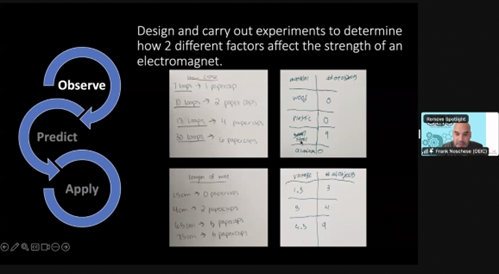
The localizing of pedagogical practice was witnessed through Mr. Tang’s sharing of his invaluable experiences implementing the OPA framework in his classroom. In particular, he highlighted its successful application across various topics, with a special focus on Energy and Pressure. By seamlessly integrating the OPA framework, Mr. Tang enabled his students to explore the fundamental principles of these concepts through hands-on activities, collaborative discussions, and real-world problem-solving exercises. This approach not only enhanced their understanding but also instilled a sense of curiosity and ownership in their learning journey.
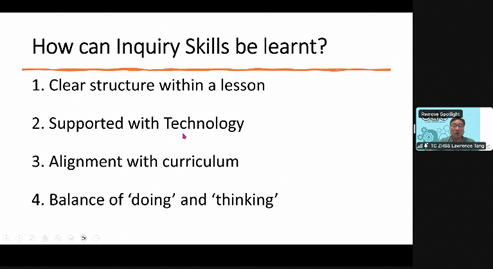
In the second segment of this workshop, local educators from four different schools shared their experiences and insights on applying inquiry-based approaches in various Physics topics through the four concurrent sessions. These sessions offered insights to dynamic methods employed by these educators to make Physics come alive for their students.
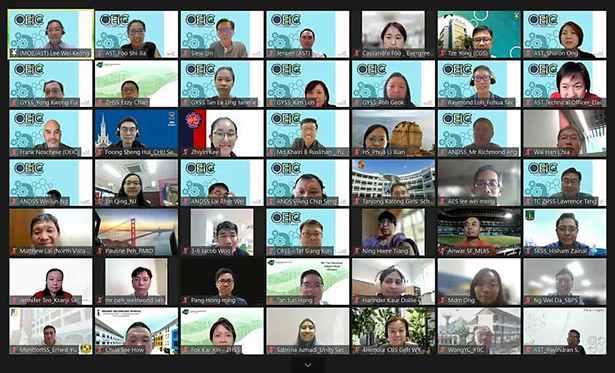
The OEIC programme has served to be a dynamic and innovative platform for educators to be inspired, exchange ideas, learn from one another’s successes, and collectively contribute to the innovation and transformation of Physics education. Through the application of the OPA framework and diverse inquiry-based methods, educators are empowered to transform traditional classrooms into vibrant hubs of curiosity, critical thinking, and practical application, aligned to the nurturing of 21st century competencies in our students.
We are honoured to have the opportunity to have collaborated with Mr. Noschese through the OEIC Programme and we would like to thank him for his generosity in sharing his insights with our local educators.

